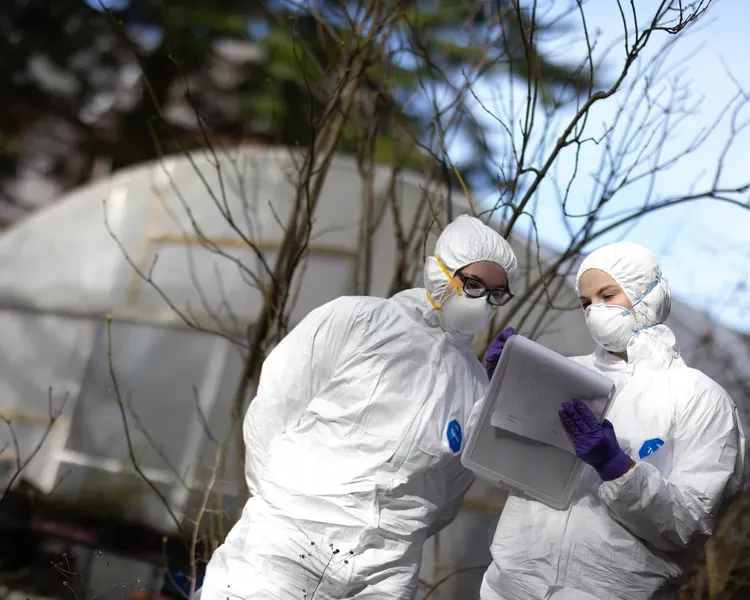Forensic Archaeology and Anthropology MSc
Forensic archaeology and anthropology are crucial when investigating cases of inter-personal violence and homicide, repatriation, mass disasters, and war crimes

Guardian University Guide 2026
This course brings together Forensic Archaeology and Forensic Anthropology. Our MSc provides a deep understanding of how human remains are recovered and analysed.
Forensic archaeology uses archaeological methods to find and recover human remains. It also uses forensic evidence in crime scenes and humanitarian investigations.
Forensic anthropology focuses on the study of human remains. This is to help identify individuals for legal and humanitarian purposes.
This course prepares you for work in forensic investigations, including:
- homicide cases
- repatriation
- mass disasters
- war crimes.
You will learn from forensic experts. They will guide you through real-world casework and practical applications.
During the course, you will gain hands-on experience in forensic recovery and analysis. You will develop key skills such as:
- carrying out forensic searches and excavations for human remains
- analysing skeletal remains to determine identity and cause of death
- writing forensic archaeology and skeletal reports for legal cases
- presenting evidence as an expert witness in court.
You will take part in practical exercises and case studies. These will prepare you for real forensic investigations.
Increased employability
This MSc provides specialist skills and knowledge for careers in:
- forensic science
- law enforcement
- humanitarian work.
You will be well-prepared for roles in:
- forensic search and recovery teams
- police and government forensic units
- international human rights investigations
- disaster victim identification.
Passionate teaching
You will learn from world-leading forensic experts who are actively involved in casework and research. Their passion for forensic science ensures that you receive the latest knowledge and skills in the field.
Student community
At Dundee, you will be part of a friendly and supportive student community. You will work alongside like-minded peers and take part in practical learning. Additionally, you will build professional networks to support your forensic science career.
William Morris, MSc Forensic Archaeology and Anthropology graduate
If you have any questions about the admissions process, studying, or living in Dundee, please contact us